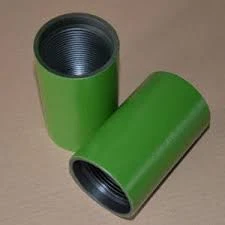- Afrikaans
- Albanian
- Amharic
- Arabic
- Armenian
- Azerbaijani
- Basque
- Belarusian
- Bengali
- Bosnian
- Bulgarian
- Catalan
- Cebuano
- Corsican
- Croatian
- Czech
- Danish
- Dutch
- English
- Esperanto
- Estonian
- Finnish
- French
- Frisian
- Galician
- Georgian
- German
- Greek
- Gujarati
- Haitian Creole
- hausa
- hawaiian
- Hebrew
- Hindi
- Miao
- Hungarian
- Icelandic
- igbo
- Indonesian
- irish
- Italian
- Japanese
- Javanese
- Kannada
- kazakh
- Khmer
- Rwandese
- Korean
- Kurdish
- Kyrgyz
- Lao
- Latin
- Latvian
- Lithuanian
- Luxembourgish
- Macedonian
- Malgashi
- Malay
- Malayalam
- Maltese
- Maori
- Marathi
- Mongolian
- Myanmar
- Nepali
- Norwegian
- Norwegian
- Occitan
- Pashto
- Persian
- Polish
- Portuguese
- Punjabi
- Romanian
- Russian
- Samoan
- Scottish Gaelic
- Serbian
- Sesotho
- Shona
- Sindhi
- Sinhala
- Slovak
- Slovenian
- Somali
- Spanish
- Sundanese
- Swahili
- Swedish
- Tagalog
- Tajik
- Tamil
- Tatar
- Telugu
- Thai
- Turkish
- Turkmen
- Ukrainian
- Urdu
- Uighur
- Uzbek
- Vietnamese
- Welsh
- Bantu
- Yiddish
- Yoruba
- Zulu
compression tubing coupler
Understanding Compression Tubing Couplers A Comprehensive Overview
Compression tubing couplers are essential components in various industrial applications, designed to create leak-proof seals between two pieces of tubing. These couplers are relied on in industries ranging from chemical processing to plumbing and beyond, ensuring that fluids, gases, and other materials are transported safely and efficiently. In this article, we delve into the intricacies of compression tubing couplers, their applications, benefits, and considerations when selecting the right coupler for your needs.
What is a Compression Tubing Coupler?
A compression tubing coupler is a fitting used to connect two sections of tubing. It operates on a simple mechanical principle as you tighten the nut on the coupler, it compresses a ring (often referred to as the ferrule) around the outer diameter of the tubing. This compression creates a strong seal that prevents leaks, ensuring that the contents of the tubing remain contained. The design of these couplers allows for easy installation and disassembly, making them a popular choice for temporary and permanent applications alike.
Key Benefits of Compression Tubing Couplers
1. Leak-Proof Design One of the primary advantages of compression tubing couplers is their ability to form a reliable, leak-proof seal. This is particularly important in applications where the transportation of liquids or gases is involved, as any leakage could lead to dangerous situations or costly downtime.
2. Ease of Installation Compression couplers can be easily installed and removed. This characteristic is valued in many sectors, allowing for quick repairs or adjustments without the need for specialized tools.
3. Versatility These couplers can be used with a variety of materials, including metal and plastic tubing. Their versatility makes them suitable for a wide range of applications, from water supply systems to pneumatic and hydraulic systems.
4. Cost-Effective When compared to other types of fittings and couplers, compression fittings are generally more cost-effective. They require minimal maintenance and offer a long lifespan, contributing to overall savings in both time and resources.
5. Enabling Thermal Expansion Compression tubing couplers can accommodate slight movements and expansions in tubing, mainly due to temperature changes. This flexibility helps in maintaining system integrity over time.
Applications of Compression Tubing Couplers
compression tubing coupler

Compression tubing couplers are utilized across multiple industries. Some common applications include
- Chemical Processing Ensuring that chemicals are transferred safely between containers and processing units. - Plumbing Connecting pipes and tubing, especially in water supply and waste systems. - Pneumatics Used in systems that transport compressed air and gases. - Hydraulics Essential for creating leak-proof connections in hydraulic systems which use pressurized fluids.
Choosing the Right Compression Tubing Coupler
When selecting a compression tubing coupler, several factors should be taken into consideration
1. Material Compatibility Ensure that the coupler material is compatible with the type of fluid or gas being transported. For example, corrosive substances may require couplers made from stainless steel or specific plastics.
2. Size and Diameter Consider the outer diameter of the tubing you are working with. It is crucial for the coupler to match the tubing specifications to achieve a secure fit.
3. Pressure Ratings Check the pressure ratings of the coupler. Different couplers are designed to handle varying levels of pressure, and it is essential to select one that can withstand the pressure of your application.
4. End Type Compression couplers come in various end types, such as male, female, or universal ends. The end type should correspond to the tubing being used.
5. Regulations and Standards Always check if the coupler meets industry-specific regulations and standards, especially for applications in sectors like food and beverage or medical industries.
Conclusion
Compression tubing couplers play a critical role in creating sealed connections between tubing segments across various industries. With their leak-proof design, ease of installation, and versatility, they contribute significantly to the reliability and efficiency of fluid and gas transportation systems. By carefully considering factors like material compatibility, size, pressure ratings, and industry standards, you can select the right compression tubing coupler to meet your specific needs. As technology continues to advance, these couplers will undoubtedly evolve, enhancing their functionality and application spectrum even further.
-
Tubing Pup Joints: Essential Components for Oil and Gas OperationsNewsJul.10,2025
-
Pup Joints: Essential Components for Reliable Drilling OperationsNewsJul.10,2025
-
Pipe Couplings: Connecting Your World EfficientlyNewsJul.10,2025
-
Mastering Oilfield Operations with Quality Tubing and CasingNewsJul.10,2025
-
High-Quality Casing Couplings for Every NeedNewsJul.10,2025
-
Boost Your Drilling Efficiency with Premium Crossover Tools & Seating NipplesNewsJul.10,2025







